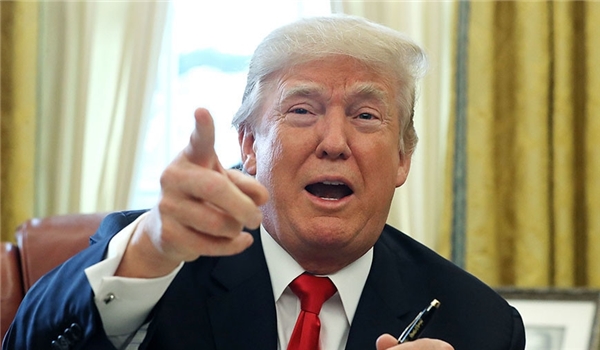
RNA - Today a significant portion of the world’s population is watching how the salesman-in-chief is drumming up more arms sales to the Middle Eastern dictatorships and proxies. Admittedly, Trump is as committed to getting juicy arms contracts for those well-connected arms makers as anyone, and is pushing a new whole government approach for increasing arms sales.
What this means is greatly reducing restrictions based on arms trafficking regulations. State Department officials confirm the plan, saying that it would allow them to “share the burden” of making sales with the privately-owned arms-makers, and “provide more good jobs for American workers” at the expense of global peace and security. But the export push, aided by the Pentagon regime, which often pays the cost of transporting the latest weaponry to air shows in such places as Dubai and Riyadh, runs counter to interests of the countries buying the latest weapons.
Critics of US arms exports say that this increased reliance on foreign sales is being fuelled more by the financial needs of defense contractors than by national security. It’s a match made in hell. They see this as an unholy alliance of industry and government working to hawk sophisticated weapons abroad as a way to keep factories open at home until the Pentagon can justify a new round of weapon-buying.
Moreover, while the Trump regime has long openly made increasing arms sales a priority, it’s also deliberately gotten a huge amount of US arms into the hands of terror proxies in the commission of war crimes. Which is not surprising considering the fact that Trump is not known to be a peace fan.
His only interactions with global peace talks – like the Israeli-Palestinian conflict or Syria war - have involved destroying the prospects of any peace, recognizing Al-Quds as Israel’s capital, weaonizing rebel forces and terror proxies to occupy the oil-rich regions of post-ISIL Syria, supporting the Saudi-led war on Yemen, and calling Iran a “terrorist nation” for protesting US-led regime-change campaigns in Iraq, Syria, and Yemen.
No doubt, Trump and the Military-Industrial Complex are not a friend of peace, let alone fighting the War on Terror – they are just breathing in what is most reactionary about the situation and outcome (read violence and instability) that surrounds it. The official reason Trump sends troops to places like Syria, on his own accounts, is that he wants to go where the money is.
One would be forgiven for being concerned that he thinks there is an actual place in that devastated country that likes Trump. But let’s assume that the military occupation of Syria means a place where Trump’s bruised ego can bask in friendly surroundings. It’s still bizarre, considering that the elected government of post-ISIL Syria and its Iranian-Russian allies keep telling the Trumpsters to withdraw their occupying troops now that the foreign-backed terrorist group has been defeated.
Not surprisingly, the Trumpsters claim to be confident their arms sales will lead to further victory in places like Yemen and Syria. They also thwart protests at the United Nations and Security Council because they believe their inaction and failure would actually help them influence the politics of post-ISIL Syria, not the other way around. But should the world body who voted against the Syrian and Yemeni invasions really fear American backlash?
Absolutely not. In fact, the UN should highlight their opposition to Trump’s new arms sales campaign even in its client states. Most polling in the US about the US-backed, Saudi-led war on Yemen has been critical. They suggest broad unpopularity in Syria as well. They suggest that UN member states have little to fear from any US backlash. Lest we forget, last month they did overwhelmingly denounce Trump’s dangerous decision to declare Al-Quds as Israel’s new capital, and the Trumpsters couldn’t do a damn thing about it.
On the other hand, strong international support for peace and stability in the Middle East does exceed all the expectations. Ironically, the highest support for US arms sales cuts can be found in the US itself with well-educated populations. They appear to be least enthusiastic about Trump “making America great again” through arms sales and conflicts in the region. As for the economic and national security issues that can surface with such deals, war-party Washington faces the largest opposition from ordinary people as well.
Beyond opposing America’s arms sales and military adventures, the international civil society contends that the US and company should not be allowed to gain an upper hand in having a say in the future of Iraq, Syria and Yemen, in part to the huge failures and blowbacks of their regime-change campaigns in practice. They believe that far from being a messenger of freedom and democracy, the US and company have jeopardized the very existence and future of many nations. This will likely play out similarly if US occupation of Iraq, Syria and Yemen – on the back of the big business of arms sales governed by foreign policy objectives - continues apace.
847/940